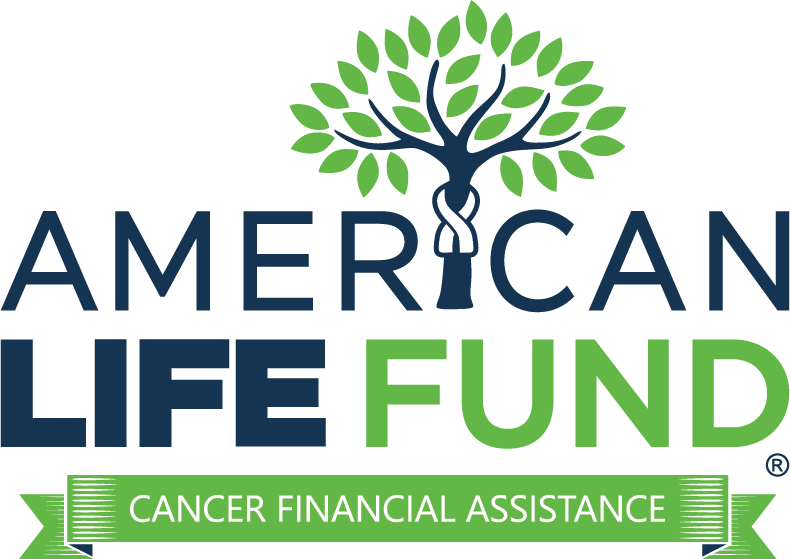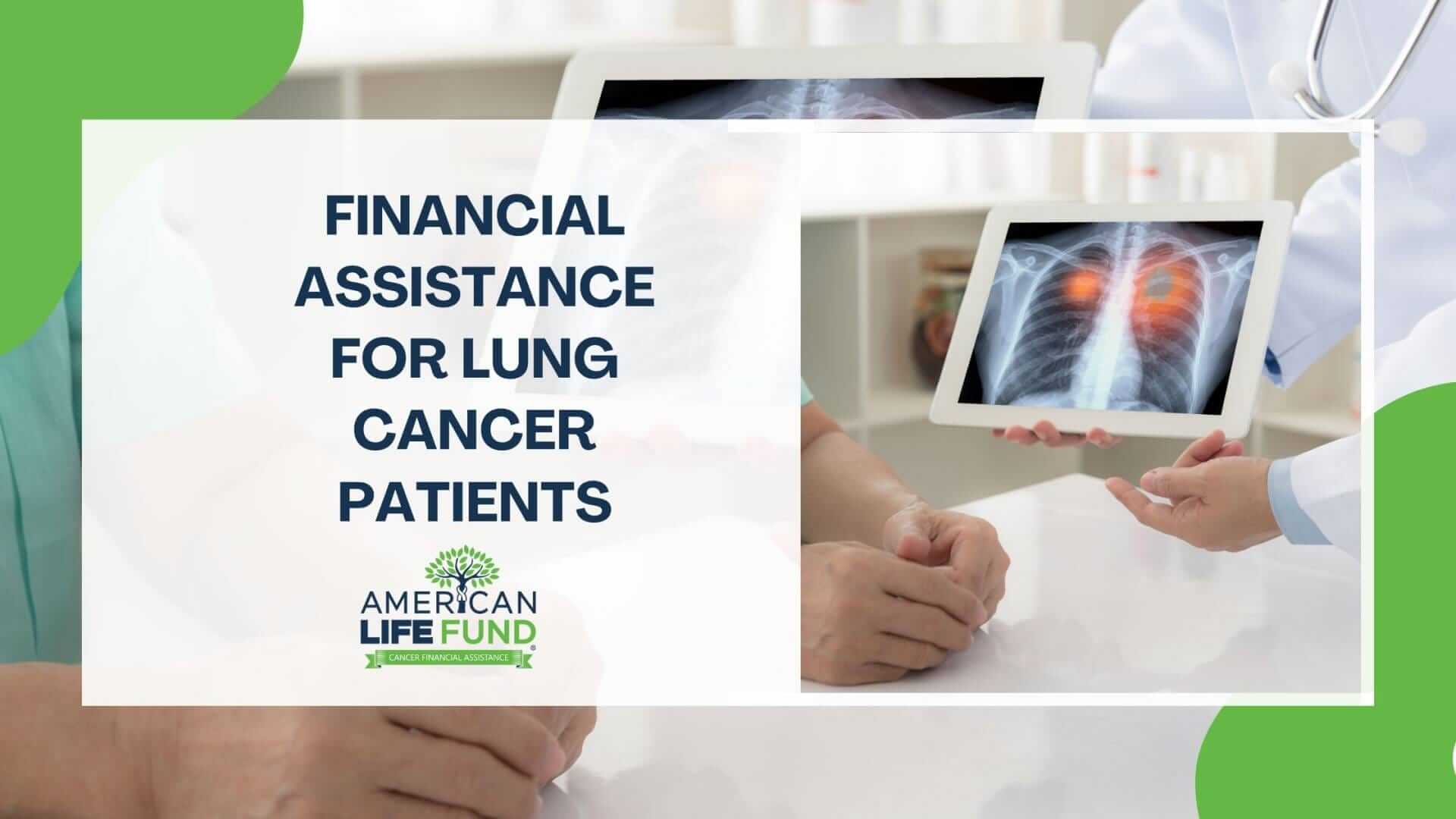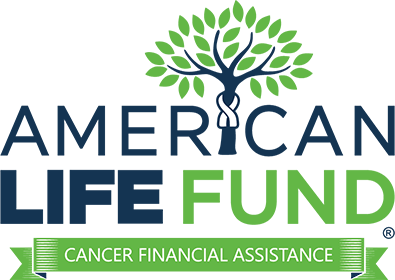Key Takeaways
- Lung cancer treatment can be expensive, but help is available.
- Viatical settlements provide immediate funds by selling life insurance policies.
- Grants from organizations like the LUNGevity Foundation and Bonnie J. Addario Lung Cancer Foundation assist with treatment and travel costs.
- Government programs like Medicaid, Medicare, and SSI offer financial support for eligible patients.
- Housing grants are available to help those facing homelessness during treatment.
Hearing the word “cancer” can shatter your world. In that moment, life feels like it’s spiraling out of control, filled with uncertainty and fear. Alongside the emotional turmoil, the looming financial burden can feel just as enormous, leaving you wondering how you’ll afford treatment and support your family at the same time.
But you are not alone. We are here to help guide you through this difficult time. Here at American Life Fund, we’re dedicated to providing you with information on financial assistance available to lung cancer patients, offering you different options to ease the burden. Whether it’s accessing funds for necessary treatments, finding resources to cover daily expenses, or understanding your insurance options, we’ve gathered the support you need to take next steps.
Let us help you find financial peace of mind so you can focus on what matters, fighting your cancer and embracing every moment with your loved ones.
Viatical Settlements and Life Insurance
Life insurance and viatical settlements are important financial considerations for individuals, including lung cancer patients.
Life insurance is a financial contract in which an individual (the policyholder) pays premiums to an insurance company in exchange for a death benefit paid out to beneficiaries upon the policyholder’s death. Life insurance provides financial security to surviving family members, lung cancer survivors, and loved ones, helping cover funeral costs, debts, and ongoing living expenses.
Viatical settlements are a specific type of life settlement that involves individuals with life-threatening illnesses, such as advanced-stage lung cancer. In a viatical settlement, the policyholder sells their life insurance policy to a viatical settlement company in exchange for a lump-sum cash payment. Viatical settlements provide critical financial support to individuals who need funds for medical treatments or living expenses.
Key points to consider about viatical settlements:
- Eligibility: Viatical settlements are typically available to individuals with serious illnesses like advanced lung cancer who have a life policy of $150,000 or more.
- Tax Considerations: The proceeds from viatical settlements are often tax-free, providing financial relief to policyholders.
- Privacy and Confidentiality: Viatical settlements are confidential agreements, and the viator’s privacy is respected throughout the process.
Read more about why you can trust American Life Fund to be your partner during this challenging time
How To Find Financial Assistance For Lung Cancer Patients
Contact Local Cancer Centers and Hospitals
- Reach out to local cancer centers and hospitals in your area.
- Contact social workers or patient advocates at these centers.
- Obtain valuable information about financial assistance for lung cancer patients from these professionals.
- Benefit from their knowledge of available community resources.
- Receive guidance through the application process for financial assistance.
Consult Non-Profit Organizations
- Reach out to non-profit organizations dedicated to supporting cancer patients, such as the American Cancer Society and the Lung Cancer Foundation of America.
- Contact these organizations through their websites or hotlines.
- Inquire about their financial assistance programs.
- Obtain information on grants, co-payment assistance, and other forms of financial support.
Community-Based Organizations
- Check if your area has community-based organizations or support groups for lung cancer.
- Explore these groups for information on financial assistance resources.
- Gain insights from their personal experiences with financial assistance.
- Join a support group to receive both emotional and practical support.
Explore Pharmaceutical Assistance Programs
- Identify if you require expensive and specific medications as part of your treatment, such as for small cell lung cancer.
- Explore prescription assistance programs offered by pharmaceutical companies for patients who cannot afford medications.
- Contact the manufacturer of your prescribed medication to inquire about patient assistance programs.
Lung Cancer-Specific Financial Grants From Organizations
Financial grants from organizations dedicated to lung cancer support is a vital resource for patients and their families. These grants often help cover the costs associated with lung cancer treatment, from medical expenses to day-to-day necessities.
Lung Cancer Foundation of America
The Lung Cancer Foundation of America offers Lung Cancer Research and Education grants, which provides benefits to help lung cancer patients cover the cost of treatment. These grants alleviate financial burdens and promote better access to lung cancer care.
LUNGevity Foundation
The LUNGevity Foundation provides Lung Cancer Support and Research grants. These grants aim to offer financial assistance for lung cancer patients and support research efforts.
Bonnie J. Addario Lung Cancer Foundation
The Bonnie J. Addario Lung Cancer Foundation offers various patient-focused programs, including financial assistance for lung cancer patients. They provide Lung Cancer Patient Travel Assistance grants and other forms of support to help ease the financial burdens of lung cancer patients and their families.
Patient Advocate Foundation – Lung Cancer CareLine
The Patient Advocate Foundation’s Lung Cancer CareLine specifically supports lung cancer patients. They offer financial assistance grants and co-payment support to help patients access the necessary care.
Lung Cancer Alliance
Lung Cancer Alliance is dedicated to empowering patients, families, and caregivers by providing access to the latest treatments, advocating for effective policies, and building a community focused on healing and strength. They work to:
- Advance research
- Improve patient care
- Raise awareness about lung cancer prevention and detection
As part of our discussion on financial assistance for lung cancer patients, the role of alliances like this cannot be overstated. They contribute to funding research and supporting legislative efforts and play a vital role in guiding patients to financial resources and support networks.
Government Financial Assistance Programs
In addition to the support provided by non-profit organizations and private foundations, government agencies offer a range of financial assistance for lung cancer patients to manage the financial challenges that arise during treatment. These programs provide a safety net for those in need. Here are some government financial assistance programs to consider:
- Medicaid: Medicaid is a joint federal and state program that provides healthcare coverage for low-income individuals and families. Eligibility and benefits vary by state, but it often covers medical expenses related to lung cancer treatment, including doctor’s visits, hospital stays, and prescription medications.
- Medicare: Medicare is a federal health insurance program for individuals 65 and older. However, it also benefits younger individuals with disabilities, including lung cancer patients who meet specific criteria. Medicare offers coverage for various healthcare services and may help cover treatment costs.
- Supplemental Security Income (SSI): The Social Security Administration administers the Supplemental Security Income program. It provides financial assistance to individuals with limited income and resources. Eligible patients may receive monthly cash payments to help cover basic living expenses.
- Temporary Assistance for Needy Families (TANF): The Temporary Assistance for Needy Families program offers financial assistance to low-income families, including those with dependent children. While not specific to lung cancer, TANF helps alleviate financial hardships by providing cash benefits and support services.
Housing Financial Assistance
For lung cancer patients, maintaining stable housing is just as important as accessing medical treatment. The financial strains that often accompany a cancer diagnosis can make covering rent or mortgage payments challenging. Fortunately, there are housing financial assistance programs and resources available to provide support during this difficult time. Here are some options to consider:
- The Section 8 Housing Choice Voucher Program: The Section 8 Housing Choice Voucher Program is a federal initiative that assists low-income individuals and families find safe and affordable housing. Eligible participants receive vouchers that can be used to subsidize rent payments.
- Emergency Shelter Grants: The Emergency Solutions Grants (ESG) program is designed to help individuals and families experiencing homelessness or those at risk of becoming homeless. Lung cancer patients struggling to maintain housing stability due to medical expenses may be eligible for support through ESG.
- Housing Nonprofits and Charities: Numerous housing nonprofits and charities nationwide offer financial assistance and housing support to individuals and families facing hardship. Organizations like Habitat for Humanity, local housing authorities, and regional charities may provide financial aid or affordable housing options.
- Assistance from Cancer Support Organizations: Cancer support organizations like the American Cancer Society, American Lung Association and the Lung Cancer Foundation of America may provide housing financial assistance as part of their comprehensive support services.
- State and Local Assistance Programs: Many states and local municipalities have housing assistance programs, including rent and mortgage relief initiatives. To find these programs, contact your local housing authority or visit the website of your state’s Department of Housing and Urban Development (HUD) for information on housing assistance in your area.
Utility Assistance
Lung cancer treatment may lead to increased energy bills due to medical equipment usage, additional heating or cooling needs, and the general impact of the illness on daily life. Managing these expenses is challenging. Fortunately, there are utility assistance programs and resources to help ease the financial burden. Here are some options and considerations:
- Low-Income Home Energy Assistance Program (LIHEAP): LIHEAP is a federally funded program that provides financial assistance to low-income individuals and families to help cover heating or cooling costs. Eligibility and available benefits vary by state, so contact your local LIHEAP office for information on how to apply.
- Energy Company Assistance Programs: Many energy companies offer assistance programs for customers facing financial difficulties. These programs may include payment plans, bill assistance, or discounts based on income.
Transportation Assistance
Transportation tends to be a significant concern for lung cancer patients, especially when dealing with frequent medical appointments and treatment sessions. Fortunately, various transportation assistance options and other resources are available to help ease the burden of getting to and from healthcare facilities.
American Cancer Society’s Road To Recovery Program
The American Cancer Society’s Road To Recovery Program offers free rides to and from cancer treatment appointments. Trained volunteer drivers provide transportation.
Patient Advocate Foundation’s National Financial Resource Directory
The Patient Advocate Foundation provides a National Financial Resource Directory with transportation assistance programs. You can search for local and national resources to help with transportation expenses during treatment.
Prescription Assistance:
- Patient Assistance Programs (PAPs): Many pharmaceutical companies offer patient assistance programs that provide free or reduced-cost medications to individuals who meet specific income and insurance criteria. Each program has its eligibility requirements.
- Part D Extra Help (Low-Income Subsidy): Medicare offers a Part D Extra Help program that assists low-income individuals with their prescription drug costs. Eligibility is based on income and resources.
- Medicaid: Medicaid provides health coverage, including prescription medicines, to low-income individuals and families. Eligibility varies by state, and income limits are key to determining eligibility.
- State Pharmaceutical Assistance Programs (SPAPs): Some states offer SPAPs that provide financial assistance for prescription medications to residents with specific income and age requirements. Eligibility and benefits depend on your state.
- Non-profit Organizations: Some non-profit organizations, such as the Patient Advocate Foundation and NeedyMeds Medicine Assistance Tool, offer resources and information on prescription assistance programs.
Fundraising And Crowdsourcing
Fundraising and crowdsourcing have emerged as powerful tools for securing financial support to manage the expenses associated with lung cancer treatment. These platforms allow individuals to share their lung cancer journey, connect with a global community, and raise funds to alleviate medical costs. Here are steps and examples of platforms where you can initiate fundraising campaigns tailored to lung cancer:
Creating a Fundraising Campaign:
- Start by creating a campaign on a reputable fundraising platform.
- Convey your lung cancer story, diagnosis, and how the funds will be used.
- Utilize photographs or videos to establish a personal connection with potential donors.
Promoting Your Campaign:
- Share your campaign on social media, email, and other platforms to reach a wider audience.
- Engage with local communities, friends, and family to garner support and build momentum for your campaign.
Providing Updates:
- Keep your donors informed about your campaign’s progress and lung cancer treatment journey.
- Express gratitude and maintain transparency regarding fund utilization to establish trust and encourage continued donations.
Popular Fundraising and Crowdsourcing Platforms:
- GoFundMe: A well-recognized platform for personal fundraising, GoFundMe enables individuals to create campaigns for medical expenses, including lung cancer treatment costs.
- Kickstarter: While traditionally used for creative projects, Kickstarter can also be utilized for personal or community causes, including lung cancer-related campaigns.
- Fundly: Fundly is a user-friendly platform that allows individuals to raise funds for medical expenses and various causes.
- JustGiving: A global online fundraising platform that facilitates individuals in raising money for personal causes and charitable organizations.
- Charity Navigator: Although not a crowdsourcing platform, Charity Navigator can assist individuals in locating reputable organizations to which they can apply for financial assistance or direct potential donors to contribute on their behalf.
Financial Expectations For Lung Cancer Patients
Understanding and preparing for the potential financial impact can help lung cancer patients and their families navigate this aspect of the journey more effectively. In this section, we’ll explore the financial expectations that lung cancer patients may face and offer insights into how to prepare for and manage these challenges.
Medical Expenses:
- Lung cancer treatment can involve various medical procedures, surgeries, chemotherapy, radiation therapy, and medications. While health insurance may cover a portion of these costs, patients often face out-of-pocket expenses, including deductibles, copayments, and uncovered treatments.
Loss of Income:
- Treatment may require time off work for medical appointments, surgeries, and recovery. For some patients, this can result in a temporary or even long-term loss of income. Understanding your workplace benefits, including sick leave and disability coverage, is essential.
Non-Medical Expenses:
- Beyond medical bills, patients may incur additional non-medical expenses related to transportation, childcare, home modifications, and personal care products. These costs can add up and impact the overall financial picture.
Insurance and Coverage:
- Review your health insurance policy carefully to understand what is covered and what isn’t. Familiarize yourself with terms like deductible, copayment, and out-of-pocket maximums. Additionally, consider seeking assistance from patient advocacy organizations to support insurance-related challenges.
Financial Assistance Programs:
- Explore available financial assistance programs, grants, and support organizations dedicated to lung cancer patients. These resources can provide much-needed relief for various expenses.
Budgeting and Financial Planning:
- Create a comprehensive budget that accounts for medical and non-medical expenses. Seek guidance from financial advisors or counselors to develop a plan that helps you manage costs effectively.
Support Systems:
- Lean on friends, family, and support groups for emotional and financial support. They can assist with fundraising, transportation, and childcare, among other things.
Legal and Financial Documents:
- Ensure that important legal documents, such as wills and powers of attorney, are in place. These documents can help you and your family make informed financial decisions during your lung cancer journey.
Who To Contact For Lung Cancer Financial Assistance
When seeking financial assistance for lung cancer, knowing where to turn for help is essential. Contact your healthcare provider or social worker, who can guide you through available resources and programs. Nonprofit organizations specializing in lung cancer support and patient advocacy often offer valuable assistance. They can point you in the right direction.
Explore government programs, charitable foundations, and online resources dedicated to financial aid for lung cancer patients. These sources can help you with various options available to alleviate the financial burdens of lung cancer treatment.
Does Stage 4 Lung Cancer Qualify For Disability?
Stage 4 lung cancer may qualify an individual for disability benefits in the United States, including Social Security Disability Insurance (SSDI) and Supplemental Security Income (SSI). The eligibility for disability benefits is determined by the severity of the condition, its impact on the individual’s ability to work, and other factors. Here are some key points to consider:
- Medical Evidence: To qualify for disability benefits, individuals with stage 4 lung cancer must provide comprehensive medical evidence of their diagnosis and the severity of their condition. This typically includes medical records, test results, and information from healthcare providers.
- Medical Listing: The Social Security Administration (SSA) has a Listing of Impairments, which outlines medical conditions that automatically qualify for disability benefits if certain criteria are met. Lung cancer is included in this listing. The specific criteria for stage 4 lung cancer are detailed in the listing.
- Residual Functional Capacity (RFC): If your condition does not meet the criteria of the medical listing, the SSA will assess your residual functional capacity (RFC). This evaluation considers your ability to perform work-related activities, such as lifting, standing, and walking. If your RFC shows that you cannot perform your previous work or any other substantial gainful work due to your condition, you may be eligible for disability benefits.
- Duration of Disability: To qualify for disability benefits, your condition must be expected to last at least 12 months or result in death.
- Work Credits: To qualify for SSDI, you must have earned enough work credits through your employment history. On the other hand, SSI is a needs-based program that considers income and resources.
Compassionate Allowances: Some individuals with extremely severe medical conditions, including certain types of advanced cancer, may qualify for expedited processing of their disability claim through the Compassionate Allowances program.



